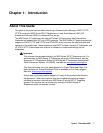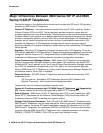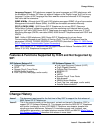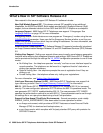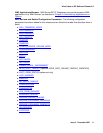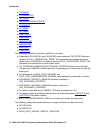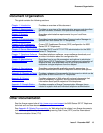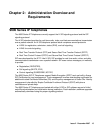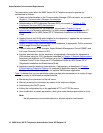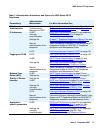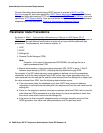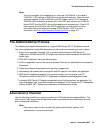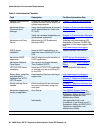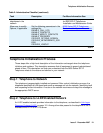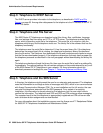
Issue 2 December 2007 15
Chapter 2: Administration Overview and
Requirements
9600 Series IP Telephones
The 9600 Series IP Telephones currently support the H.323 signaling protocol and the SIP
signaling protocol.
The H.323 standard provides for real time audio, video, and data communications transmission
over a packet network. An H.323 telephone protocol stack comprises several protocols:
● H.225 for registration, admission, status (RAS), and call signaling,
● H.245 for control signaling,
● Real Time Transfer Protocol (RTP) and Secure Real Time Transfer Protocol (SRTP)
● Real Time Control Protocol (RTCP) and Secure Real Time Control Protocol (SRTCP)
SIP was developed by the IETF. Like H.323, SIP provides for real time audio, video, and data
communications transmission over a packet network. SIP uses various messages, or methods,
to provide:
● Registration (REGISTER),
● Call signaling (INVITE, BYE)
● Control signaling (SUBSCRIBE, NOTIFY)
The 9600 Series SIP IP Telephones support Media Encryption (SRTP) and use built-in Avaya
SIP Certificates for trust management. Trust management involves downloading certificates for
additional trusted Certificate Authorities (CA) and the policy management of those CAs. Identity
management is handled by Simple Certificate Enrollment Protocol (SCEP) with phone
certificates and private keys.
The 9600 Series IP Telephones are loaded with either H.323 or SIP software as part of initial
script file administration and initialization during installation. Post-installation, software upgrades
automatically download using the proper signaling protocol.



